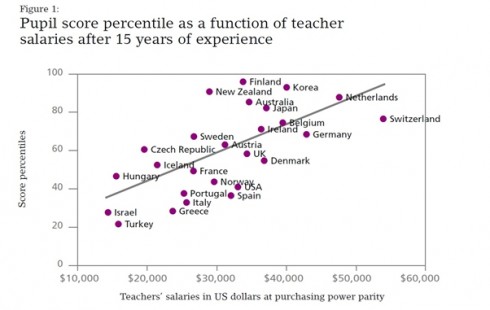… tangible rewards tend to have a substantially negative effect on intrinsic motivation.
— Desi et al., 1999.
Edward Deci (and others) published a paper (pdf) in 1999 that analyzed a whole bunch of earlier studies on how extrinsic rewards affect motivation. Their conclusion is that rewards are generally bad because rewards prevent people from learning how to motivate themselves.
… the primary negative effect of rewards is that they tend to forestall self-regulation. In other words, [expectation of rewards] undermine people’s taking responsibility for motivating or regulating themselves
— Desi et al., 1999.
So while they may work in the short term, rewards do long-term damage.
When institutions—families, schools, businesses, and athletic teams, for example—focus on the short term and opt for controlling people’s behavior, they may be having a substantially negative long-term effect.
— Desi et al., 1999.
They also find that rewards can push you into a negative feedback loop, because to properly administer a reward you usually need increased monitoring and you produce more competition. Both of these undermine intrinsic motivation so you’re left with using more extrinsic rewards. (think also of high-stakes testing and No Child Left Behind).
So what to do? Desi et al. report that:
intrinsic motivation … requires environmental supports. …the necessary supports are opportunities to satisfy the innate needs for competence and self-determination.
(Note: I found out about this article while reading Daniel Pink’s, Drive).
